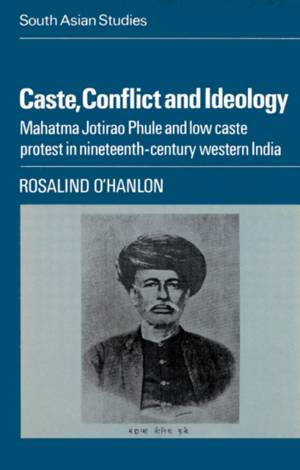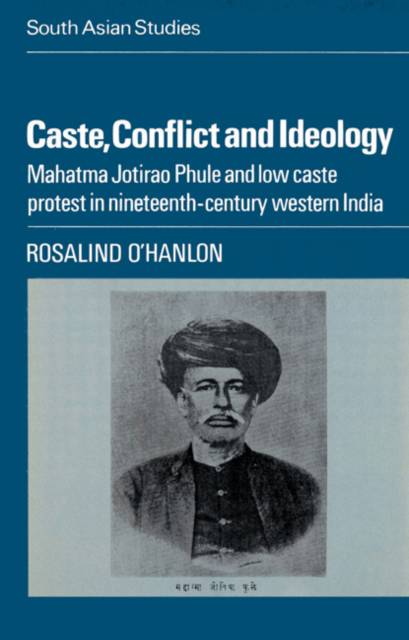
Bedankt voor het vertrouwen het afgelopen jaar! Om jou te bedanken bieden we GRATIS verzending (in België) aan op alles gedurende de hele maand januari.
- Afhalen na 1 uur in een winkel met voorraad
- Gratis thuislevering in België
- Ruim aanbod met 7 miljoen producten
Bedankt voor het vertrouwen het afgelopen jaar! Om jou te bedanken bieden we GRATIS verzending (in België) aan op alles gedurende de hele maand januari.
- Afhalen na 1 uur in een winkel met voorraad
- Gratis thuislevering in België
- Ruim aanbod met 7 miljoen producten
Zoeken
Caste, Conflict and Ideology
Mahatma Jotirao Phule and Low Caste Protest in Nineteenth-Century Western India
Rosalind O'Hanlon, O'Hanlon Rosalind
€ 60,95
+ 121 punten
Uitvoering
Omschrijving
The nineteenth century saw the beginning of a violent and controversial movement of protest amongst western India's low and untouchable castes, aimed at the effects of their lowly position within the Hindu caste hierarchy. The leaders of this movement were convinced that religious hierarchies had combined with the effects of British colonial rule to produce inequality and injustice in many fields, from religion to politics and education. This study concentrates on the first leader of this movement, Mahatma Jotirao Phule. It shows him as its first ideologist, working out a unique brand of radical humanism. It analyses his contribution to one of the most important and neglected social developments in western India in this period - the formation of a new regional identity. This process of identity formation is studied against the background of the earlier history of caste relations in this area of India, and contributes important evidence about the relationship between ritual status and political power.The movement itself provides a fascinating example of early Third World radicalism, illustrating the role of ideology and religion in the struggle against British colonial power.
Specificaties
Betrokkenen
- Auteur(s):
- Uitgeverij:
Inhoud
- Aantal bladzijden:
- 344
- Taal:
- Engels
- Reeks:
- Reeksnummer:
- nr. 30
Eigenschappen
- Productcode (EAN):
- 9780521523080
- Verschijningsdatum:
- 22/08/2002
- Uitvoering:
- Paperback
- Formaat:
- Trade paperback (VS)
- Afmetingen:
- 141 mm x 215 mm
- Gewicht:
- 444 g

Alleen bij Standaard Boekhandel
+ 121 punten op je klantenkaart van Standaard Boekhandel
Beoordelingen
We publiceren alleen reviews die voldoen aan de voorwaarden voor reviews. Bekijk onze voorwaarden voor reviews.












